On 15 February 2021, the Royal Society of Tasmania offered a formal Apology to the Tasmanian Aboriginal people. Read more

On 15 February 2021, the Royal Society of Tasmania offered a formal Apology to the Tasmanian Aboriginal people. Read more
Where: On your computer via Zoom
When: 1.30 pm Sunday 27th September 2020
To participate in this webinar, you must register in advance; click here to do that. After registering, you will receive a confirmation email containing information about joining the webinar.
Professor Breadmore is pioneering the development of portable and transportable technology to provide chemical information when and where the sample is collected. Applications include the detection of home-made explosives at airports, the continuous monitoring of nutrients in our rivers, and more recently, whether we can use these to detect viruses.
After public education in northern Tasmania, our speaker graduated from University of Tasmania with BSc (Hons); PhD; DSc. He has made a continued and sustained contribution towards miniaturized analytical technology for clinical, forensic, environmental and food applications at UTAS. He was one of three finalists in the Eureka Outstanding Young Researcher Award (2011), has been listed in the Analytical Scientist’s power list of the top 100 analytical chemists in the world (2014, 2017, 2019), and is the Director of the Australian Centre for Research on Separation Science.
Generously supported by 

The Royal Society of Tasmania acknowledges, with deep respect, the traditional owners of this land, and the ongoing custodianship of the Aboriginal people of Tasmania. The Society pays respect to Elders past, present and emerging. We acknowledge that Tasmanian Aboriginal Peoples have survived severe and unjust impacts resulting from invasion and dispossession of their Country. As an institution dedicated to the advancement of knowledge, the Royal Society of Tasmania recognises Aboriginal cultural knowledge and practices and seeks to respect and honour these traditions and the deep understanding they represent.

On 15 February 2021, the Royal Society of Tasmania offered a formal Apology to the Tasmanian Aboriginal people. Read more